Πολιτισμοί, Μεταναστεύσεις, Σύνορα - MigBord2017
HEATH CABOT (heathcabot@gmail.com) - UNIVERSITY OF PITTSBURGH
Heath Cabot is an assistant professor of anthropology at the University of Pittsburgh. She completed her M.A. (2005) and PhD (2010) at the University of California, Santa Cruz, and she has since held postdoctoral positions at Princeton University and the University of Sussex. She is a legal and political anthropologist whose research interests lie in the areas of aid distribution, ethics and epistemology, and citizenship. Her first research project focused on the asylum procedure in Greece, humanitarian aid and human rights professionals, and the everyday effects of EU and Greek law and policy. She has recently begun a new project on social solidarity pharmacies and the (re)distribution of pharmaceuticals and care in the face of a healthcare crisis in Greece. Her work has been funded twice by the Fulbright Foundation in Greece, the WennerGren Foundation for Anthropological Research, The US National Science Foundation, and the Woodrow Wilson National Fellowship Foundation. She is also the co-editor of the Political and Legal Anthropology Review.
Author of
(2016) "Refugee Voices:" Tragedy, Ghosts, and the Anthropology of Not Knowing. Journal of Contemporary Ethnography 45 (6): 645-672;
(2014) On the Doorstep of Europe: Asylum and Citizenship in Greece. &
(2013) The social aesthetics of eligibility: NGO aid and indeterminacy in the Greek asylum process. American Ethnologist 40 (3): 452-466
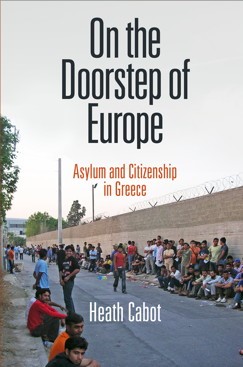
JANE COWAN (j.cowan@sussex.ac.uk) - UNIVERSITY OF SUSSEX
Jane Cowan holds a post as Professor of Social Anthropology at the University of Sussex, and is Director of the Sussex Rights and Justice Research Centre. She is also a member of the Sussex Centre for Migration Research and the Centre for Gender Studies. She received an MA (1982) and PhD (1988) in Sociocultural Anthropology and Ethnomusicology from Indiana University, Bloomington. From 2002-2005 she was Head of the Anthropology Department at the University of Sussex. Among her current commitments, she serves as a member of the University Council elected by the academic staff. Beyond Sussex, Jane is Associate Editor of the journal, Anthropological Theory. Funded by the Macarthur Foundation, Jane carried out archival research at the League of Nations Archives and has published a series of articles since 2003 focusing on claims for rights and for Macedonian nationhood made on behalf of the so-called ‘Bulgarian minorities’ in Yugoslavia and Greece. In 2010 Jane received funding from the British Academy to undertake an anthropological and historical study of the Universal Periodic Review, a new (since 2006) human rights monitoring mechanism of the reformed Human Rights Council in Geneva. She has authored two books, Dance and the Body Politic in Northern Greece (Princeton, 1990) and Macedonia: The Politics of Identity and Difference (Pluto, 2000), and has co-edited (with M. Dembour and R.Wilson) Culture and Rights: Anthropological Perspectives(Cambridge, 2001). Since 2008, she has been an active member of the international academic network, EastBordNet, convened by Professor Sarah Green.
Author of (2014) The Universal Periodic Review as a public audit ritual: An anthropological perspective on emerging practices in the global governance of human rights. &
(2006) Culture and Rights after Culture and Rights.
Co-editor of (2001) Culture and Rights: Anthropological Perspectives.
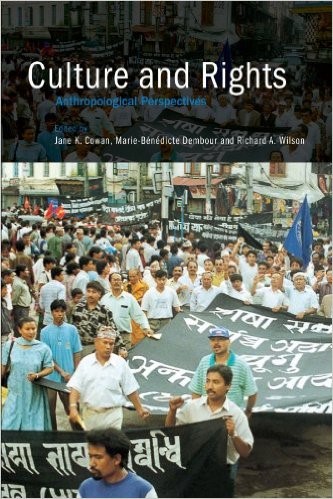
OLGA DEMETRIOU (olga.demetriou@yahoo.co.uk) - UNIVERSITY OF CYPRUS
Olga Demetriou is Senior Researcher at the Cyprus Centre of the Peace Research Institute Oslo and teaches at the Social and Political Sciences Department at the University of Cyprus. She holds a PhD in Social Anthropology from the LSE (2002), has held post-doctoral fellowships at Oxford and Cambridge Universities, and has been responsible for the Greece and Cyprus research desks at Amnesty International. She has served as co-editor of the journal The Cyprus Review and is currently treasurer of the Society for the Anthropology of Europe of the American Anthropological Association. Her research has been funded by the Royal Anthropological Institute, the Wenner-Gren Foundation for Anthropological Research, the European Commission, the Norwegian MFA, and UNDP. Olga has been researching issues of minority rights, displacement, borders and refugeehood in Greece and Cyprus and has been a member of the COST-funded network EastBordNet, chaired by Sarah Green. She has authored two books, Capricious Borders: Minority, Population and Counter-Conduct between Greece and Turkey (Berghahn, 2013) and Refugeehood and the Post-Conflict Subject: Considering Minor Losses (forthcoming, SUNY Press), and has co-edited (with Rozita Dimova) The Political Materialities of Borders: New Theoretical Directions (forthcoming, Manchester University Press) as well as two special issues, on conflict and heritage (Journal of the Balkan and Near East Studies, 2012), and on the anthropology of Cyprus (The Cyprus Review, 2013).
Author of
(2013). Capricious borders: minority, population, and counter-conduct between Greece and Turkey. Berghahn Books
(2014). ‘Struck by the Turks’: reflections on Armenian refugeehood in Cyprus. Patterns of Prejudice, 48(2), 167-181.
(2016). Counter-Conduct and the Everyday: Anthropological Engagements with Philosophy. Global Society, 30(2), 218-237.
ELENA FIDDIAN-QASMIYEH (e.fiddian-qasmiyeh@ucl.ac.uk) - UNIVERSITY COLLEGE LONDON
Elena Fiddian-Qasmiyeh is Associate Professor of Human Geography at University College London where she is the Co-Director of the Migration Research Unit, and Director of the Refuge in a Moving World research network across UCL (@RefugeMvingWrld). Elena's research focuses on experiences of and responses to conflict-induced displacement with a particular regional focus on the Middle East and North Africa. She has conducted extensive research in refugee camps and urban areas including in Algeria, Cuba, Egypt, France, Lebanon, South Africa, Syria, Sweden, and the UK. She is currently the Principal Investigator of a new major AHRC-ESRC funded interdisciplinary research project, 'Local Community Experiences of and Responses to Displacement from Syria', which involves ethnographic research with nine local communities across Lebanon, Jordan and Turkey (see www.refugeehosts.org). In 2016 she was also awarded a further major European Research Council award for her 5-year project, South-South Humanitarian Responses to Displacement from Syria, which will run from 2017-2022. In 2015, Elena was awarded a 2015 Philip Leverhulme Prize, and, in 2013, she was awarded the Lisa Gilad Prize by the International Association for the Study of Forced Migration (IASFM). Her recent books include The Ideal Refugees: Gender, Islam and the Sahrawi Politics of Survival (Syracuse University Press, 2014), South-South Educational Migration, Humanitarianism and Development: Views from the Caribbean, North Africa and the Middle East, (Routledge, 2015); The Oxford Handbook of Refugee and Forced Migration Studies, (co-editor, Oxford University Press, 2014) and Intersections of Religion and Migration: Issues at the Global Crossroads (co-editor, Palgrave Macmillan, 2016). She has also edited special journal issues on themes including “Refugee and Diaspora Memories” (Journal of Intercultural Studies, 2013), and “Faith Based Humanitarianism in Contexts of Forced Migration” (Journal of Refugee Studies, 2011). She is the co-founding editor (with Mette Berg) of a new journal entitled Migration and Society, whose inaugural issue in 2018 will explore the theme of ‘Hospitality and Hostility Towards Migrants’ in global perspective.
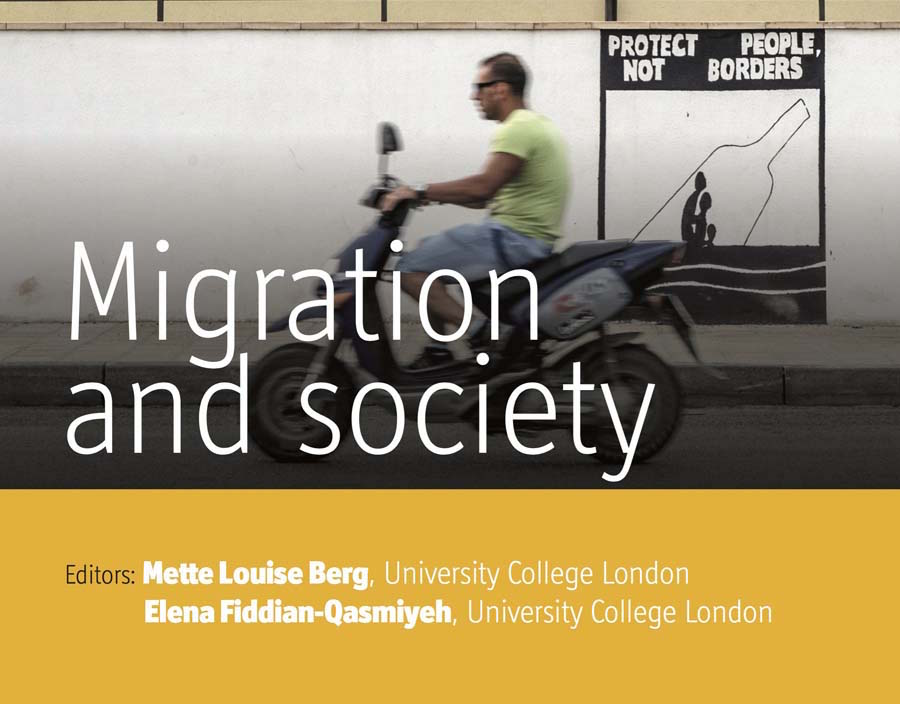
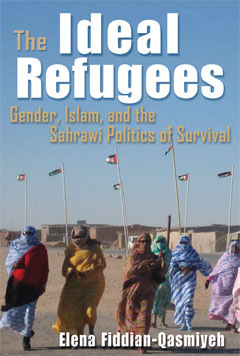
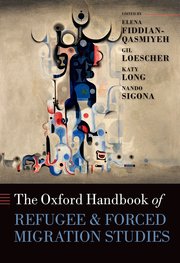
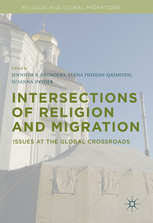
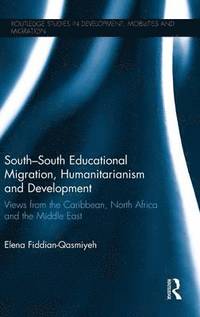
SARAH GREEN (sarah.green@helsinki.fi) - UNIVERSITY OF HELSINKΙ
Sarah Green is Professor of Social Anthropology at the University of Helsinki. She is a specialist on location, borders and spatial relations, though the subject matter of her research over the last 20 years has been diverse and has included among others the politics of gender and sexuality, conceptions of the environment, circulation of money in the Aegean, border relations on the Greek-Albanian border and, most recently, the shifting concept of border in the eastern peripheries of Europe. Her publications include Notes from the Balkans (2005; Princeton University Press) winner of the Douglass Prize for best contribution to Europeanist Anthropology; and Urban Amazons (1997), an ethnography on separatist feminists in London. In 2008, Professor Green launched an international research network, EastBordNet dedicated to developing new approaches towards the study of borders on the eastern peripheries of Europe, from the Baltics and environs down to the Balkans and environs. The network (EastBodNet) now involves 27 countries and over 280 researchers.
Co-author of (2013) Borderwork: A visual Journey through Peripheral Frontier Reginos.
Author of (2005) Notes from the Balkans: Locating Marginality and Ambiguity on the Greek-Albanian Border.
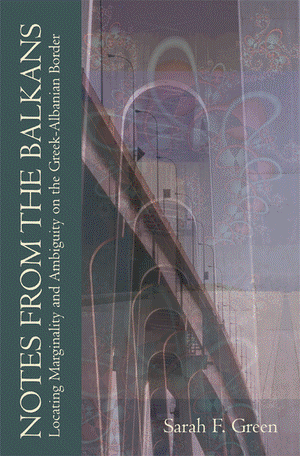
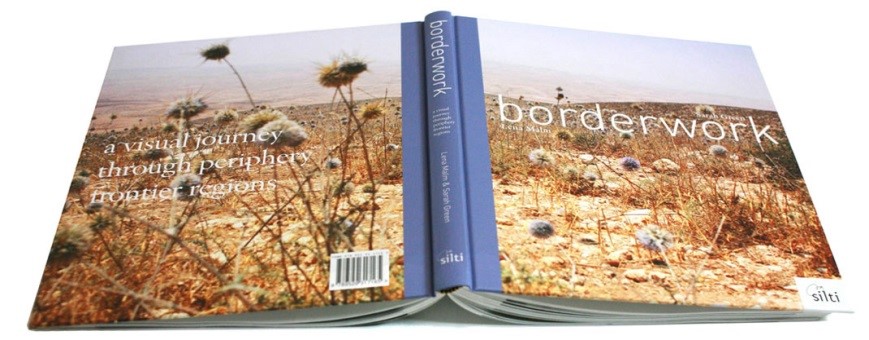
BARAK KALIR (B.Kalir@uva.nl) - UNIVERSITY OF AMSTERDAM
Barak Kalir is Associate Professor at the Department of Sociology and Anthropology at the University of Amsterdam. He is co-director of the Institute for Migration and Ethnic Studies (IMES) and program director of the two Masters Programmes. From 2006 to 2009 he was a post-doc researcher and programme coordinator of the WOTRO/NWO Integrated Programme: Illegal but Licit on transnational flows in Asia. He has published several articles and book chapters on the subject of migration, like ‘Uncovering the Legal Cachet of Labor Migration to Israel’ in David and Koslowski (eds.) Global Human Smuggling Johns Hopkins University Press (2011). His book Latino Migrants in the Jewish State: Undocumented Lives in Israel (Indiana University Press, 2010) has been nominated for the Book Prize awarded by the Society for Economic Anthropology and has been awarded the highest recommendation at the influential American review Choice. Kalir has also co-edited with Malini Sur “Transnational Flows and Permissive Polities: Ethnographies of Human Mobilities in Asia” IIAS Publication Series, Amsterdam UP (2012). He is currently directing a 5-year ERC-funded research project on the Social Life of State Deportation Regimes (The Social Life of State Deportation Regimes: A Comparative Study of the Implementation Interface) in Spain, Greece, The Netherlands, Ireland, India, Israel and Ecuador.
Author of The deportation continuum: convergences between state agents and NGO workers in the Dutch deportation field (2015) &
Co-editor of Transnational Flows and Permissive Polities: Ethnographies of Human Mobilities in Asia. (2012) (see also)
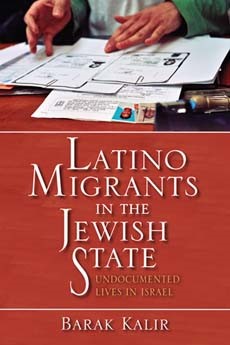
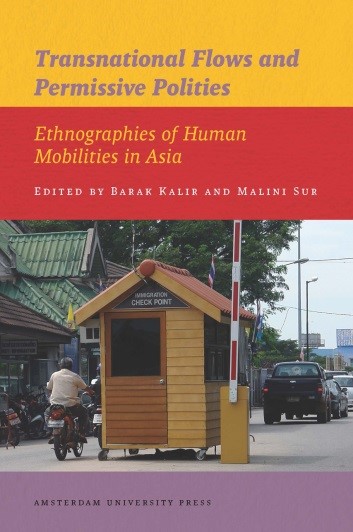
FLIP LINDO (flip.lindo@gmail.com) - UNIVERSITY OF AMSTERDAM
Flip Lindo took his BA in Sociology and his MA in Anthropology at the University of Amsterdam (1981). He holds a PhD in the Social Sciences from Utrecht University (1996). He worked as a Senior Research Fellow and Lecturer in the Department of Sociology and Anthropology of the University of Amsterdam, until his retirement in 2013. He has done fieldwork in Northern Greece and the Netherlands. His research topics included immigrant youth, interethnic relations, and processes/discourses of inclusion and exclusion. Nowadays he does not research anymore, but volunteers for the Dutch Council of Refugees (VluchtelingenWerk), helping refugee families who have settled in his home municipality. He remains actively interested in how people make sense of experiences from their successive face-to-face interactions pertaining to their decision to flee their home, to the preparation of their journey, to the journey itself, to their reception in the Netherlands, to their processing into "licensees" ('vergunninghouders'), to the trials and tribulations of the requirement of 'civic integration' ('inburgering') and to their settling in locally while trying to remain reconciled with their loved ones who are far away.
EVTHYMIOS PAPATAXIARCHIS (epapat@sa.aegean.gr) - UNIVERSITY OF THE AEGEAN
Evthymios Papataxiarchis is Professor of Social Anthropology at the University of the Aegean where he directs the Postgraduate Program on “Social and Historical Anthropology” and the Laboratory of Ethnography. He holds a Bachelors and a PhD degree in Social Anthropology from the London School of Economics. Professor Papataxiarchis has taught as a visiting professor in the Universities of Athens and Crete, in the École des HautesÉtudesen Sciences Sociales (Paris) and in Bogadici University (Istanbul). His publications include Lilies of the Field: Marginal People Who Live for the Moment, (ed. with S. Day and M. Stewart, Westview Press, 1999), Adventures of Alterity: The Production of Cultural Difference in Contemporary Greece, (ed., Alexandria Publications, 2006, in Greek), Worlds of Domestic Labour: Immigration, Gender and Cultural Transformations in early 21th century Athens, (with Penelope Topali and Aggeliki Athanassopoulou, Alexandria Publications, 2008, in Greek). He has also edited special issues of Ethnologie Française(v. 35, 2005) and Synchrona Themata (v. 98, 2007 and v.107, 2009) on cultural differentiation and the challenge of migration in contemporary Greek society.
Author of Being 'There' (2016) & La Grèce face à l’altérité (2005)
Editor of GRÈCE.ΕΛΛΑΔΑ. Figures de l’altérité (Ethnologie française, 2005) &
Adventures of Alterity: The Production of Cultural Difference in Contemporary Greece (2015) (Second edition, in Greek)
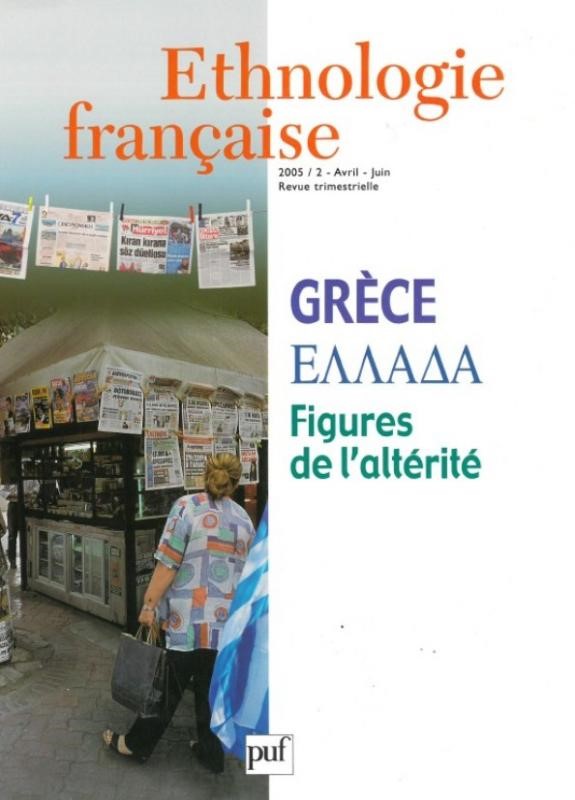
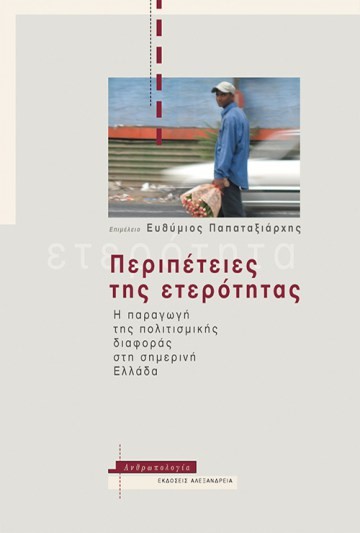
EFFIE PLEXOUSAKI (eplex@sa.aegean.gr) - UNIVERSITY OF THE AEGEAN
Effie Plexousaki is Assistant Professor of Social Anthropology at the Department of Social Anthropology and History at the University of the Aegean. She has studied Law (BA, National and Kapodistrian University of Athens) and holds a Master and a PhD degree in Ethnology and Social Anthropology from the École des Hautes Études en Sciences Sociales at Paris. She has taught at the University of Crete, Panteion Panepistimion (Athens) and at University of Athens. She has participated as a basic researcher at a long-term educational intervention titled “Education for the Muslim Minority Children in Thrace”, funded by the European Social Fund and the Greek Ministry of National Education and Religious Affairs (EPEAEK I and EPEAEK II). From 2002 to 2013 was member of the Scientific and Coordination Comittee of the above project. Her research interests focus on anthropology and ethnography of the Mediterranean, on minorities and education and on inter-ethnic relations and sociality. She is the author of the book “Culture and school” (2004) conceived as training material for teachers who work with minority children in Thrace (The “Keys and Master-Keys” Booklet Series, Web-site http://www.kleidiakaiantikleidia.net), and has edited the book “Metamorphoses of nationalism: Performances of the collective identity in modern Greece” (2014).

MARICA ROMBOU-LEVIDI (romboulevidis@gmail.com) - PANTEION UNIVERSITY ATHENS
Marica Rombou-Levidi studied Politics with Sociology at Birkbeck College (University of London) in the 1970s. She also studied, performed, and taught various forms of dance at the Royal Ballet School (London), The Place (London), and Athens. During the last twenty years she has engaged into long-term ethnographic research on the relationship between the cultural and the political in Northern Greece, focusing on the northern borderlands of the country. She received her Phd in Anthropology from the University of Sussex in 2009. Between 2009 and 2012 she lectured on anthropology of music and dance at the department of Popular and Folk Music of the Epirus TEI. Currently she is teaching at the Anthropology Department of Panteion University, Athens.
She is the author of Life under surveillance. Music, dance and the formulation of subjectivity in Macedonia. (2016) (in Greek) and her second book, entitled 'Here kaputt: Violence of the Border. National sentiment, migration and gender (in Greek), the outcome of anthropological research on "mixed marriages" between Albanian women migrants and Greek men in the Greco-Albanian borderland, is due before the end of 2017.
Co-author of Audiovisual Media and Identity Issues in Southeastern Europe. (2011)
Co-author of several other books in Greek.
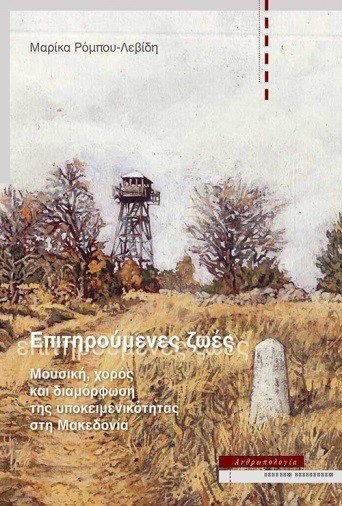
TRACEY ROSEN (tarosen@princeton.edu) - HARVARD UNIVERSITY
Tracey Rosen is a College Fellow and Lecturer in Social Studies at Harvard University. She received her Ph.D. in Anthropology from the University of Chicago and was a postdoctoral fellow in the Hellenic Studies Center at Princeton University. She has received funding from the US Department of Education (Fulbright-Hays) and the Council for European Studies to conduct over three years of doctoral field research in Greece, Europe and China. Her research examines the sociocultural dimensions of the new trade relationships forged between Greece and China. Her current book project, How «Made in China» is made in Greece tracks the introduction of Chinese merchants, commodities, and capital into local Greek markets over the course of the past fifteen years (from the adoption of the Euro to the sovereign debt crisis and its aftermath). It is conceived as an ethnography of advanced, global capitalism that examines how the representations of self/other that emerge out of this new «Sino-Hellenic» contact situation are shaped by historical categories as well as contemporary commercial practices. The book attends to both Greek and Chinese merchants to understand how forms of inter and intra-ethnic credit extension, commodity chains, competitive/cooperative strategies interface with evolving forms of trust, solidarity, and cynicism.
KATERINA ROZAKOU (K.Rozakou@uva.nl) - UNIVERSITY OF AMSTERDAM
Katerina Rozakou's research interests lie within the anthropology of the political, the politics of humanitarian aid and immigration, citizenship, volunteerism, solidarity, charity and civil society. She received her PhD in Social Anthropology at the University of Aegean and she has spent a year as a postdoctoral researcher at the Program in Hellenic Studies, Princeton University. Since 2014 she is a post-doctoral researcher at the University of Amsterdam in the ERC-funded project “The social life of state deportation regimes: A comparative study of the implementation interface”. The project is a comparative investigation of the treatment of irregular migrants and failed asylum-seekers in different countries worldwide. She has published in international and Greek academic journals and she has coedited a collective volume on civil society, patronage and violence (in Greek).
Author of
(2017), “Non-recording the “European refugee crisis” in Greece: Navigating through irregular bureaucracy". Focaal 77: 36-49;
(2016a), “Crafting the volunteer: Voluntary association and the reformation of sociality”, Journal of Modern Greek Studies 34 (1): 78–101;
(2016b), “Socialities of solidarity: Revisiting the gift taboo in times of crises”, Social Anthropology 24(2): 185-199;
(2013) Greek Paradoxes: Patronage, Civil society and Violence. (in Greek)
(2012) "The biopolitics of hospitality in Greece: Humanitarianism and the management of refugees", Journal of the American Ethnological Society 39 (3): 526–577 &
(2011) The Pitfalls of Volunteerism.The Production of the New, European Citizen in Greece.
